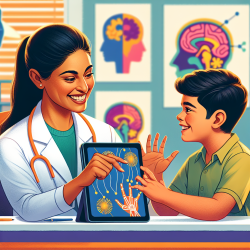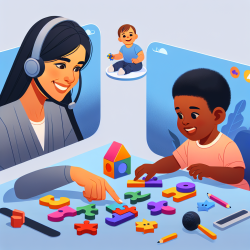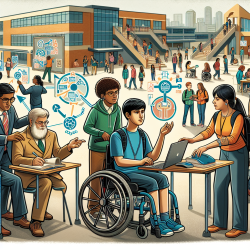The landscape of motor coordination assessment in children with neurodevelopmental disorders is evolving rapidly. A recent study titled A novel tablet-based motor coordination test performs on par with the Beery VMI subtest and offers superior temporal metrics: findings from children with pediatric acute-onset neuropsychiatric syndrome, introduces a groundbreaking tool called SpaceSwipe. This tablet-based test offers a promising alternative to traditional methods like the Beery-Buktenica Developmental Test of Visual-Motor Integration (Beery VMI).
The Need for Innovative Assessment Tools
Children with Pediatric Acute-onset Neuropsychiatric Syndrome (PANS) often face complex motor coordination challenges. Traditional assessments such as the Beery VMI have been instrumental in evaluating these issues but come with limitations, particularly in capturing temporal aspects of motor control. The study highlights the need for objective, efficient, and child-friendly tools that can provide continuous and precise metrics.
The SpaceSwipe Advantage
SpaceSwipe is a novel tablet-based test designed to assess motor coordination by tracking a moving target on a touch screen. Unlike traditional pen-and-paper tests, SpaceSwipe offers several advantages:
- Precision: It captures fine-grained spatiotemporal data at 60 frames per second, providing detailed insights into motor control.
- User-Friendly: The game-like interface is engaging for children, reducing anxiety and improving compliance.
- Efficiency: With a short administration time, it minimizes the burden on both practitioners and children.
- Objective Metrics: It provides continuous data on spatial and directional accuracy, offering a comprehensive view of motor skills.
Implementing SpaceSwipe in Practice
The study demonstrates that SpaceSwipe's directional metrics can accurately predict Beery VMI scores, making it a reliable alternative for assessing motor coordination. Practitioners are encouraged to integrate this tool into their assessment repertoire to enhance diagnostic accuracy and track progress over time.
The Future of Motor Coordination Assessment
This research opens avenues for further exploration into tablet-based assessments. Future studies could focus on comparing SpaceSwipe's efficacy across different populations and refining its features to address specific needs of children with various neurodevelopmental conditions.
Conclusion
The integration of technology in assessing motor coordination represents a significant advancement in special education. Tools like SpaceSwipe not only improve assessment accuracy but also enhance the overall experience for children and practitioners alike. As we continue to embrace innovation, the potential for improving outcomes in children with neurodevelopmental disorders grows exponentially.










